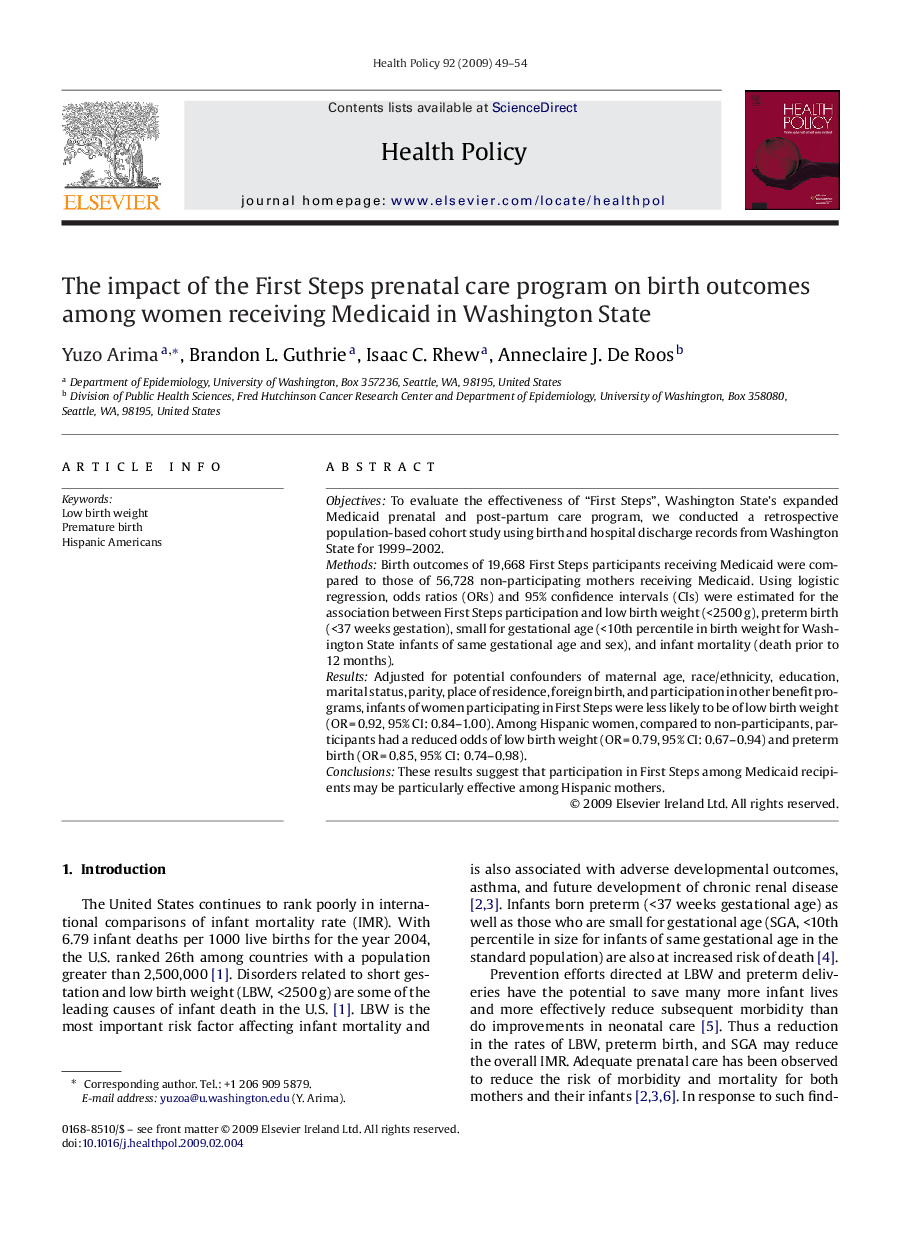| Article ID | Journal | Published Year | Pages | File Type |
|---|---|---|---|---|
| 4198405 | Health Policy | 2009 | 6 Pages |
ObjectivesTo evaluate the effectiveness of “First Steps”, Washington State's expanded Medicaid prenatal and post-partum care program, we conducted a retrospective population-based cohort study using birth and hospital discharge records from Washington State for 1999–2002.MethodsBirth outcomes of 19,668 First Steps participants receiving Medicaid were compared to those of 56,728 non-participating mothers receiving Medicaid. Using logistic regression, odds ratios (ORs) and 95% confidence intervals (CIs) were estimated for the association between First Steps participation and low birth weight (<2500 g), preterm birth (<37 weeks gestation), small for gestational age (<10th percentile in birth weight for Washington State infants of same gestational age and sex), and infant mortality (death prior to 12 months).ResultsAdjusted for potential confounders of maternal age, race/ethnicity, education, marital status, parity, place of residence, foreign birth, and participation in other benefit programs, infants of women participating in First Steps were less likely to be of low birth weight (OR = 0.92, 95% CI: 0.84–1.00). Among Hispanic women, compared to non-participants, participants had a reduced odds of low birth weight (OR = 0.79, 95% CI: 0.67–0.94) and preterm birth (OR = 0.85, 95% CI: 0.74–0.98).ConclusionsThese results suggest that participation in First Steps among Medicaid recipients may be particularly effective among Hispanic mothers.
